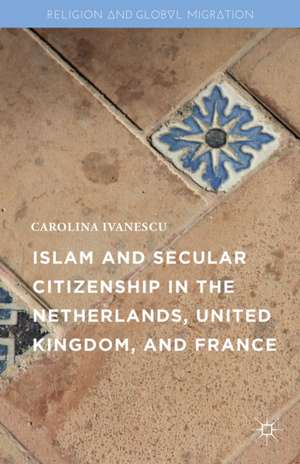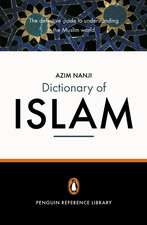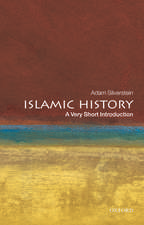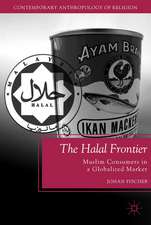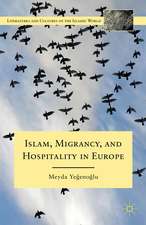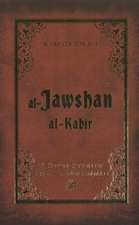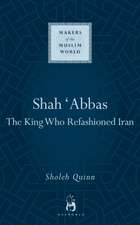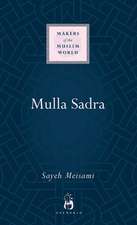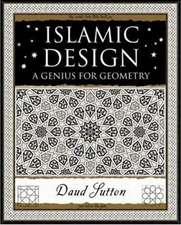Islam and Secular Citizenship in the Netherlands, United Kingdom, and France: Religion and Global Migrations
Autor Carolina Ivanescuen Limba Engleză Hardback – 5 feb 2016
Carolina Ivanescu offers a thorough theoretical grounding and tests existing theories empirically. Beginning from the idea that religion and citizenship are both crucial aspects of the state's understanding of Muslim identities, she demonstrates the relevance of collective identification processes that are articulated through belonging to geographical and ideological entities. These forms of collective identification and minority management, Ivanescu asserts, are configuring novel possibilities for the place of religion in the modern social world.
| Toate formatele și edițiile | Preț | Express |
|---|---|---|
| Paperback (1) | 382.75 lei 6-8 săpt. | |
| Palgrave Macmillan US – 31 mar 2018 | 382.75 lei 6-8 săpt. | |
| Hardback (1) | 388.90 lei 6-8 săpt. | |
| Palgrave Macmillan US – 5 feb 2016 | 388.90 lei 6-8 săpt. |
Preț: 388.90 lei
Nou
Puncte Express: 583
Preț estimativ în valută:
74.41€ • 77.70$ • 61.59£
74.41€ • 77.70$ • 61.59£
Carte tipărită la comandă
Livrare economică 04-18 aprilie
Preluare comenzi: 021 569.72.76
Specificații
ISBN-13: 9781137576088
ISBN-10: 1137576081
Pagini: 239
Ilustrații: V, 239 p.
Dimensiuni: 140 x 216 x 16 mm
Greutate: 0.44 kg
Ediția:1st ed. 2016
Editura: Palgrave Macmillan US
Colecția Palgrave Macmillan
Seria Religion and Global Migrations
Locul publicării:New York, United States
ISBN-10: 1137576081
Pagini: 239
Ilustrații: V, 239 p.
Dimensiuni: 140 x 216 x 16 mm
Greutate: 0.44 kg
Ediția:1st ed. 2016
Editura: Palgrave Macmillan US
Colecția Palgrave Macmillan
Seria Religion and Global Migrations
Locul publicării:New York, United States
Cuprins
1. Introduction
PART I: The Imaginery
2. Secularization, secularity and the secular: religion and its place in social life
PART II: The Symbolic
3. Nation, citizenship and religious migrants
PART III: The Real
4. Rotterdam – politicized religion
5. Leicester – civic religion
6. Marseille – symbolic religion
7. Comparing regimes of secularity, citizenships and fields of Muslimness
8. Concluding reflections
9. Bibliography
PART I: The Imaginery
2. Secularization, secularity and the secular: religion and its place in social life
PART II: The Symbolic
3. Nation, citizenship and religious migrants
PART III: The Real
4. Rotterdam – politicized religion
5. Leicester – civic religion
6. Marseille – symbolic religion
7. Comparing regimes of secularity, citizenships and fields of Muslimness
8. Concluding reflections
9. Bibliography
Recenzii
"Carolina Ivanescu has masterfully analyzed how, in three countries, different combinations of citizenship, secularity, and religion emerge from and then reshape politics. Her attention to local politics of citizenship is particularly important, as is her deft handling of the theoretical debates." - John R. Bowen, Washington University in St. Louis, USA
Notă biografică
Carolina Ivanescu is a independent scholar with a background in cultural anthropology and sociology.
Textul de pe ultima copertă
The past several years have seen many examples of friction between secular European societies and religious migrant communities within them. This study combines ethnographic work in three countries (The Netherlands, the United Kingdom, and France) with a new theoretical frame (regimes of secularity). Its mission is to contribute to an understanding of minority identity construction in secular societies. In addition to engaging with academic literature and ethnographic research, the book takes a critical look at three cities, three nation-contexts, and three grassroots forms of Muslim religious collective organization, comparing and contrasting them from a historical perspective.
Carolina Ivanescu offers a thorough theoretical grounding and tests existing theories empirically. Beginning from the idea that religion and citizenship are both crucial aspects of the state's understanding of Muslim identities, she demonstrates the relevance of collective identification processes that are articulated through belonging to geographical and ideological entities. These forms of collective identification and minority management, Ivanescu asserts, are configuring novel possibilities for the place of religion in the modern social world.
Carolina Ivanescu offers a thorough theoretical grounding and tests existing theories empirically. Beginning from the idea that religion and citizenship are both crucial aspects of the state's understanding of Muslim identities, she demonstrates the relevance of collective identification processes that are articulated through belonging to geographical and ideological entities. These forms of collective identification and minority management, Ivanescu asserts, are configuring novel possibilities for the place of religion in the modern social world.
